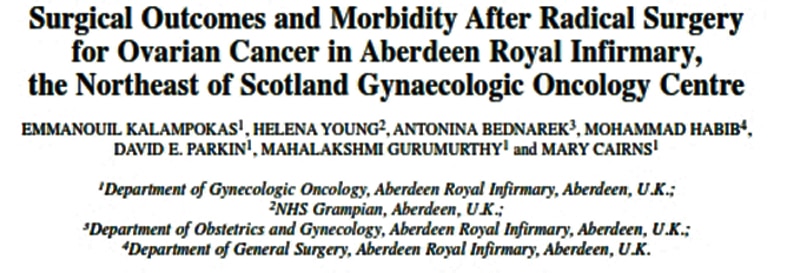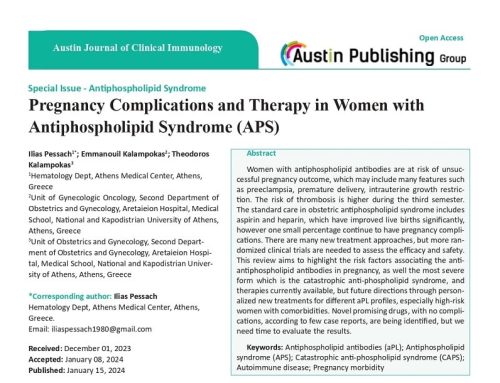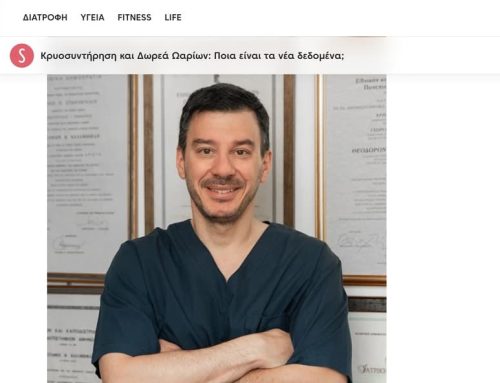Anticancer Res. 2018 Feb;38(2):923-928.
Surgical Outcomes and Morbidity After Radical Surgery for Ovarian Cancer in Aberdeen Royal Infirmary, the Northeast of Scotland Gynaecologic Oncology Centre. Kalampokas E(1), Young H(2), Bednarek A(3), Habib M(4), Parkin DE(5), Gurumurthy M(5), Cairns M(5). Author information: (1)Department of Gynecologic Oncology, Aberdeen Royal Infirmary, Aberdeen, U.K. m.kalampokas@gmail.com. (2)NHS Grampian, Aberdeen, U.K. (3)Department of Obstetrics and Gynecology, Aberdeen Royal Infirmary, Aberdeen, U.K. (4)Department of General Surgery, Aberdeen Royal Infirmary, Aberdeen, U.K. (5)Department of Gynecologic Oncology, Aberdeen Royal Infirmary, Aberdeen, U.K. BACKGROUND/AIM: Ovarian cancer (OC) has a high mortality rate and usually presents late in advanced stage, which poses challenges to management. Better understanding of the disease biology and application of radical surgery (RS) to achieve no visible residual tumor, alongside with chemotherapy, may lead to longer survival amongst these patients. Our purpose was to examine the demographic characteristics, surgical morbidity and outcomes of patients undergoing RS for OC. MATERIALS AND METHODS: A retrospective cohort study of women undertaking surgery for OC between February 2014 and September 2016 in Aberdeen Royal Infirmary. RESULTS: A total of 121 women had surgery for OC of whom 78 (64.5%) were stage II and above. Of these, 40 (51.3%) women had primary and 38 (48.7%) had interval debulking surgery with 42 (53.8%) having radical surgery. The most common procedures that were performed as part of RS included rectosigmoid resection (n=20, 47.6%), small bowel resection (n=10, 23.8%), splenectomy (n=9, 21.4%). Morbidity outcomes included blood loss >1.5 lt. (n=14, 33.3%), hospitalization >7days (n=31, 73.8%), sepsis (n=8, 19%). There was no short-term mortality. Debulking outcomes were: no macroscopic residual disease (n=36, 85.7%), ≤10 mm disease (n=2, 4.8%), and ≥10 mm disease (n=3, 7.1%). CONCLUSION: Our findings support the practise where RS for OC can be offered to selected patients, with good surgery outcomes and low morbidity rates.






